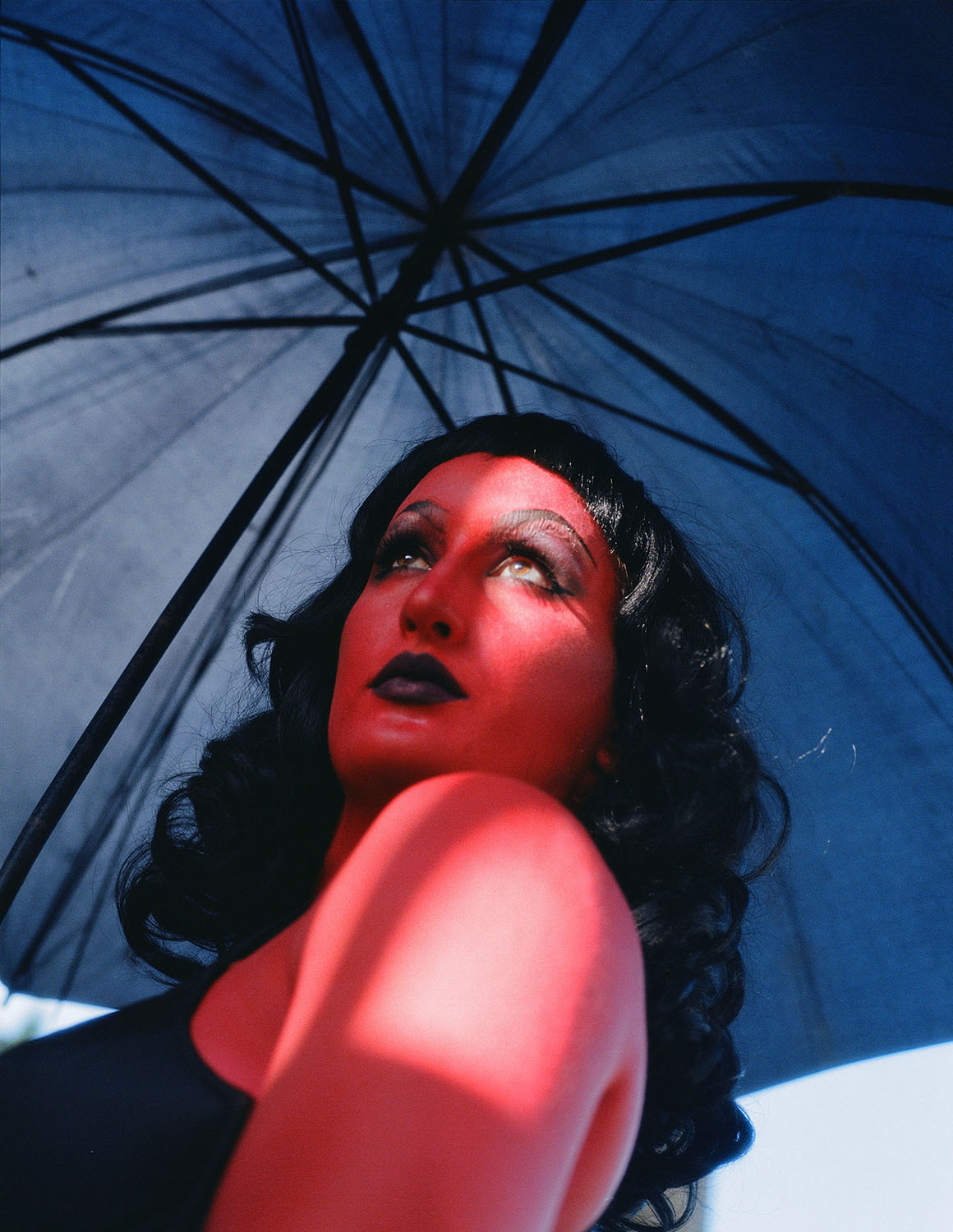Exclusive story by Hawaii born photographer Leaf Lieber from artist’s series „Trouble in Paradise“. The “Devil’s Mistress,” performed by Lieber’s childhood friend, Eden Mindel, is theatrically posing while on vacation to the tropics. The extravagant use of makeup and costume in these images works to poke fun at traditional Christian rhetoric that claims homosexuals are excluded from salvation (i.e. “gays go to hell”)..
Photographer Leaf Lieber
Model Eden Mindel
Writing Adi Dina
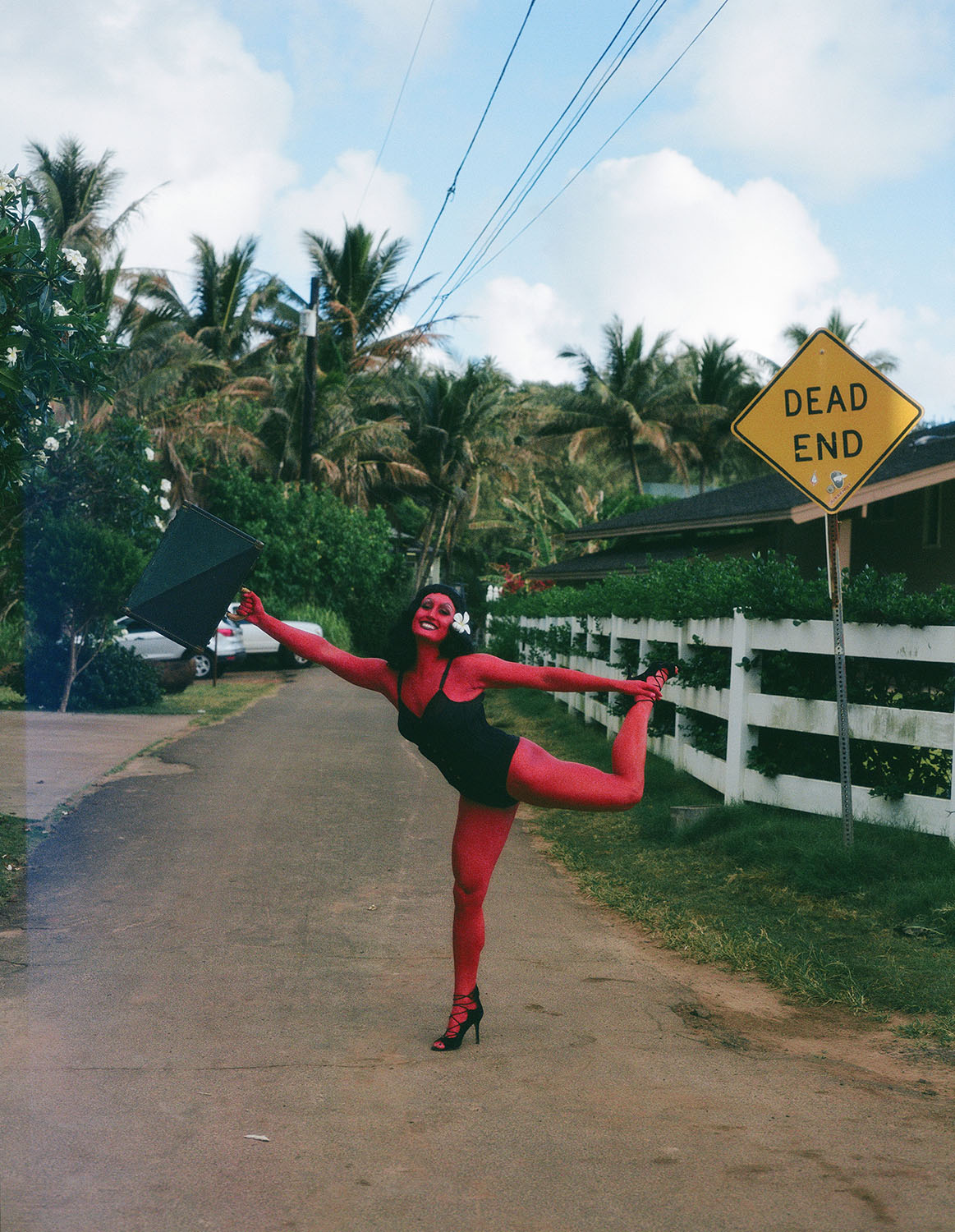

Leaf Lieber is a visual artist originally from Kauai, Hawaii. Years of drawing, painting, and theatre has led him to New York City where he is writing and directing films. Lieber describes his artistic approach as, “dark fantasy with a lot of heart. Often decadent, sometimes macabre, sensual, but always with an unashamed earnest nature. I am drawn to the unexplainable, supernatural, everything magical. Pair those themes with messages rooted in reality, universal growth periods we all face…I hope to create work that is a fuse of magical tenderness”
Lieber’s series “Trouble in Paradise” is a campy, melodramatic exploration of the demonization of queerness. The “Devil’s Mistress,” performed by Lieber’s childhood friend, Eden Mindel, is theatrically posing while on vacation to the tropics. A thick coat of fiery red paint masks her flesh, contrasting her black corset and heels. The extravagant use of makeup and costume in these images works to poke fun at traditional Christian rhetoric that claims homosexuals are excluded from salvation (i.e. “gays go to hell”).
Lieber and the model came into their queer identities as they grew up alongside each other, marking this project as a reclamation of their own internalized vilification.
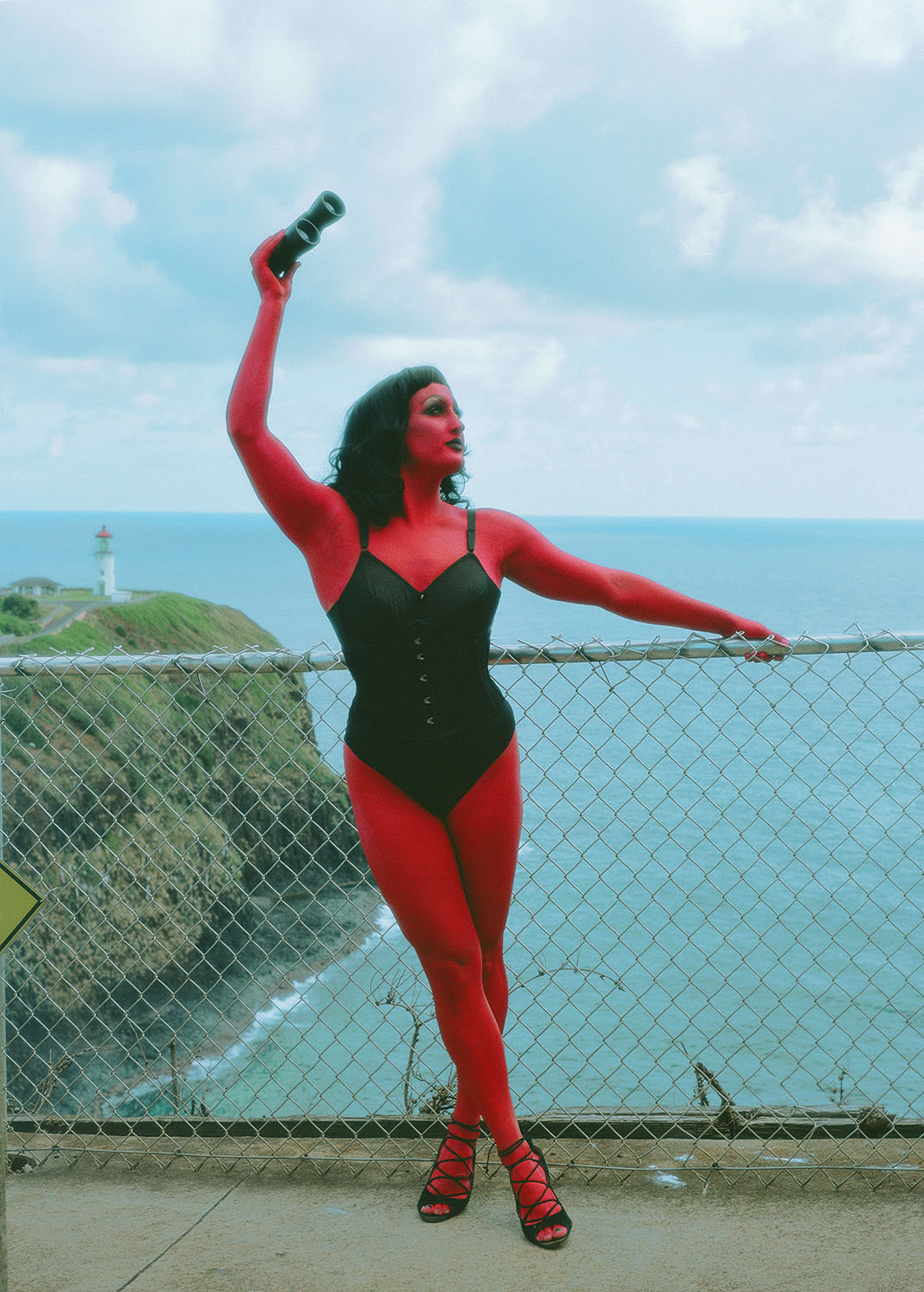
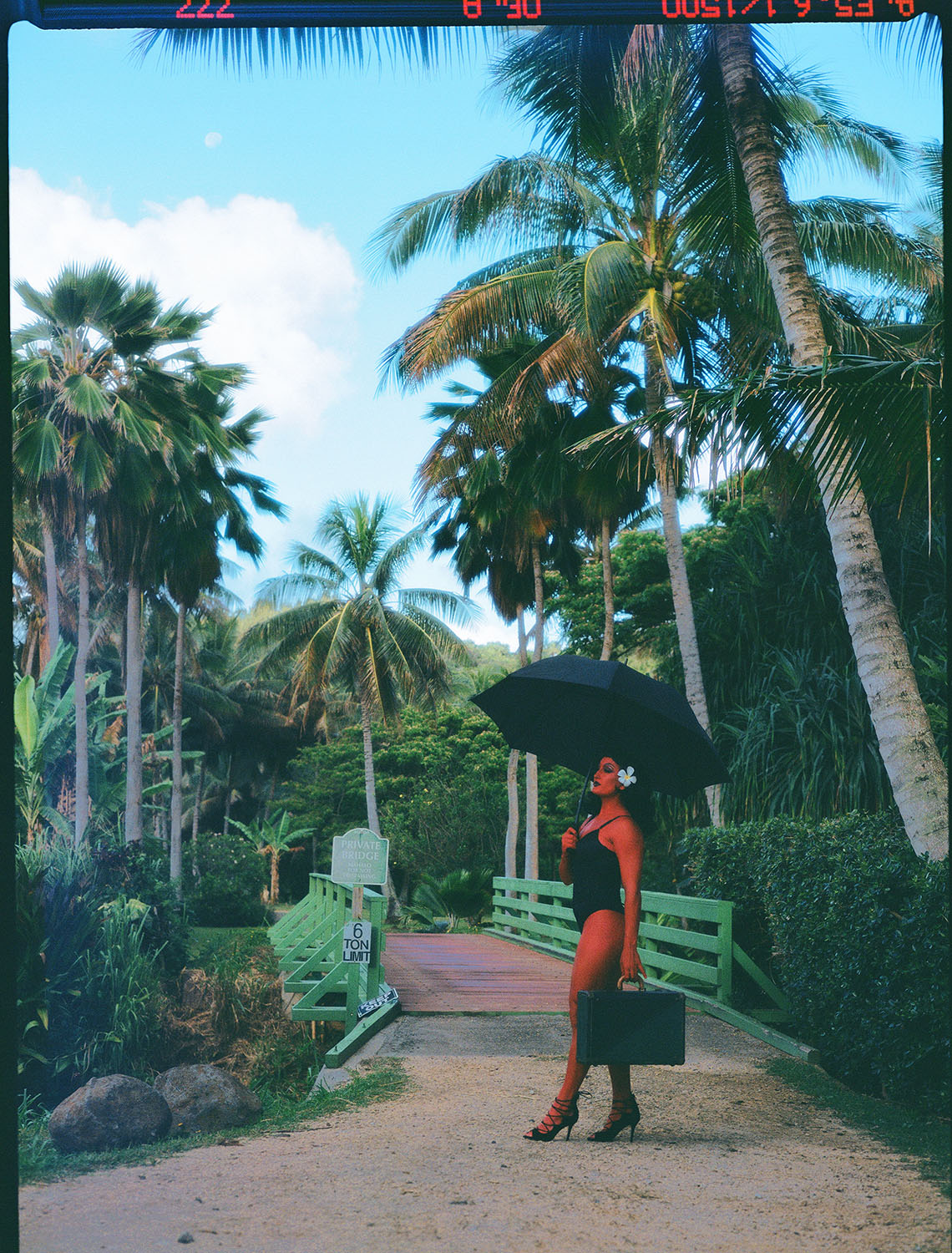
Lieber disrupts the notion that queerness is unnatural and demonic by establishing a juxtaposition between nature/artifice, heaven/hell, and innocence/evil. The Devil’s Mistress occupies the most lush, green, vivacious, and seemingly untouched landscapes as she performatively poses for the camera with the utmost joy and confidence. Her large smile and choreographed posing reveals that she is aware of the camera’s presence, and her artifice is enhanced by the thick coat of red paint that plasticizes her corporeal surface. Lieber’s cinematic act of emphasizing artificiality and performativity forces the viewer to grapple with the limiting characterizations and stereotypes projected on to queer bodies writ large.
By embodying both vivacity and mortality, the Devil’s Mistress exists in a liminal state of life and death. The devil, and their cultural association to hell and the afterlife, is implanted in the lush, ever growing vegetation of the tropics. Rather than fixating on the mourning and grief inflicted on queer bodies, this gesture brings new life to traditional conceptualizations of hell and works to celebrate queer life and
memorialize queer death.
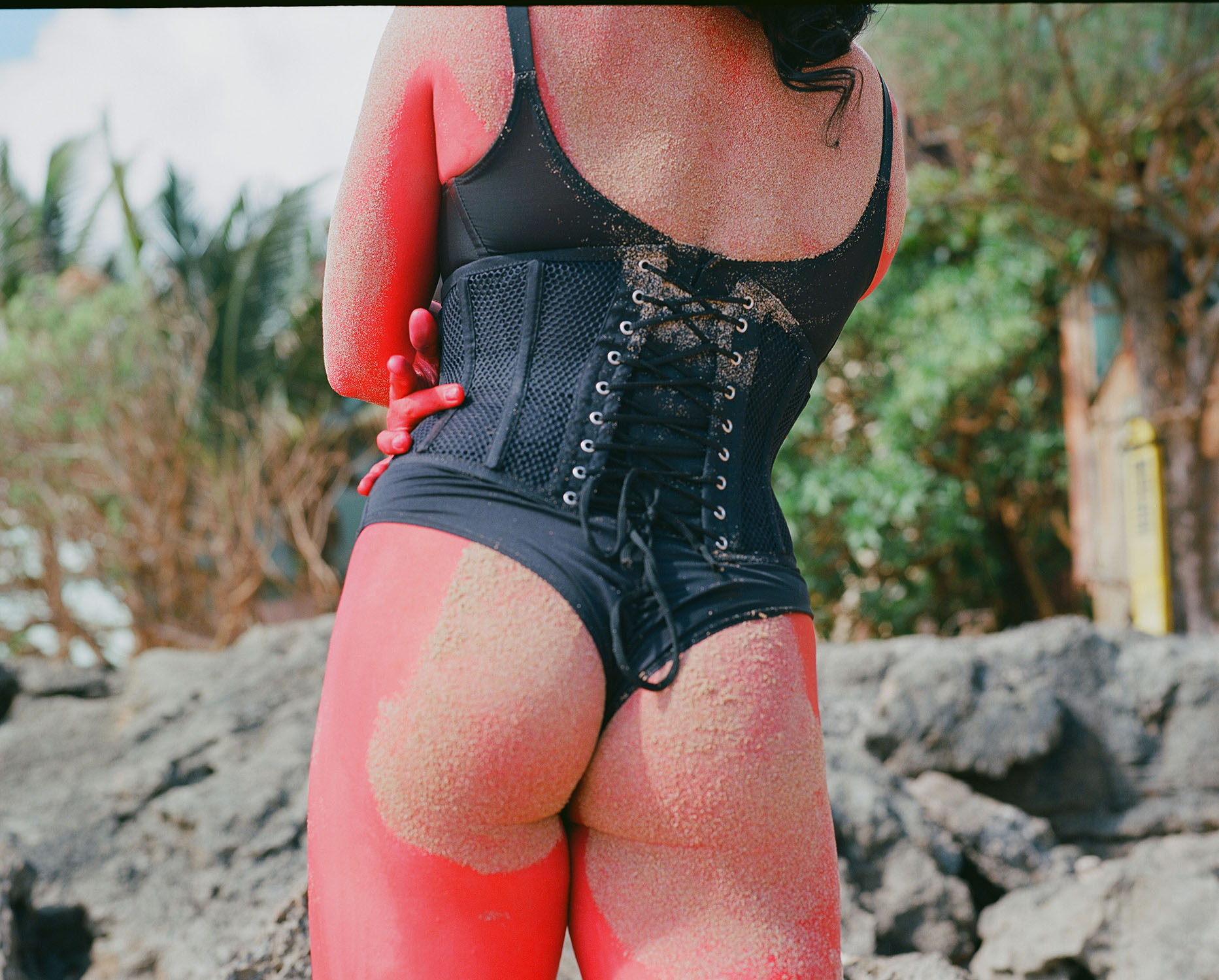
The erasure of queer bodies throughout history as well as the physical absence of queer bodies as a result of the HIV/AIDs epidemic has left an enormous dent in queer archives and memorialization. Lieber’s photographs emulate vintage vacation postcards, pin-up girl illustrations, and stills from a sexy gay thriller all at once to create a fantastical archive of the mistress’ trip from hell to the tropics. In “Trouble
in Paradise,” archive becomes the medium that allows Lieber to imagine new futures and communities for queer bodies while simultaneously memorializing absence. Ontologically archives are built to organize, taxonomize, and codify bodies– yet the act of being on vacation, posing, and performing mimics ephemeral, fleeting qualities that resist singular categorization.
By existing in between good/evil, life/death, artificial/natural, hell/tropics, the spectator is encouraged to reject essentialism and imagine queerness as malleable, fluid, and boundless.
Lieber’s diverse oeuvre of short directorial film work, collection of music videos, and photography always promises something decadent, imaginative, and stimulating to the eye. You can find his work on Leaflieber.com.
